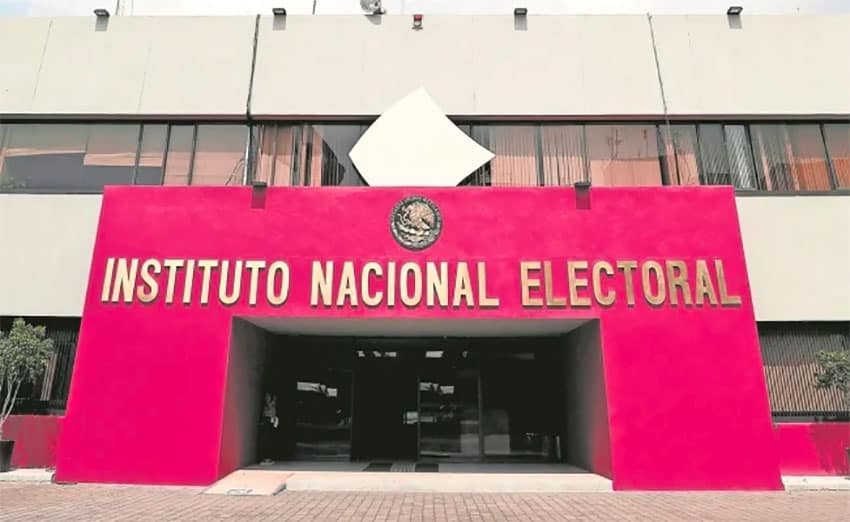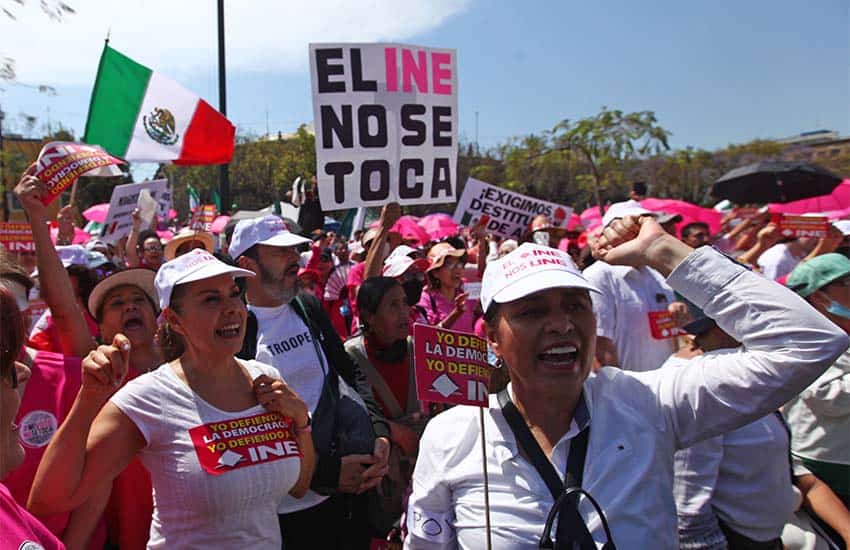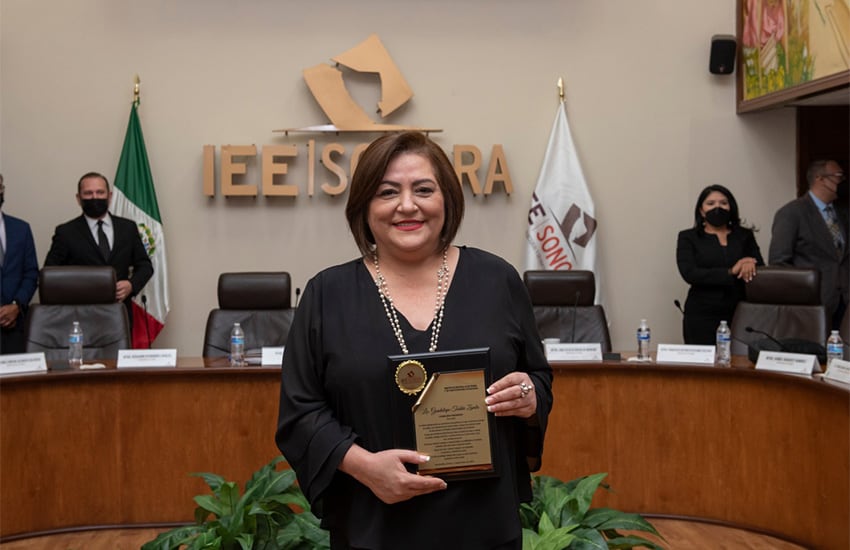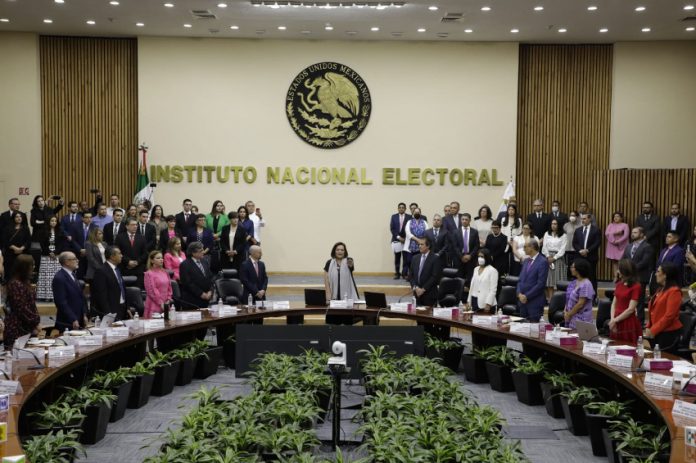Fewer than six in ten Mexicans approve of the work carried out by the National Electoral Institute (INE), according to the results of a poll published Monday.
A national survey conducted by the El Financiero newspaper found an approval rating of 59% for the elections oversight agency, a decline of nine points compared to October 2022.

The publication of the poll comes as INE president Lorenzo Córdova concludes his nine-year tenure at the helm of the autonomous body.
Only 41% of those polled said they approved of the work Córdova has done as Mexico’s electoral chief, while 53% said they disapproved.
Both the INE and its staff have faced repeated attacks from President López Obrador, who recently called Córdova “an anti-democratic character.”
López Obrador claims that the INE’s predecessor, the Federal Electoral Institute, permitted electoral fraud that cost him the 2006 and 2012 presidential elections. A legislative proposal submitted by the president to reform the INE was approved in February but the Supreme Court suspended the application of the relevant laws in late March.

Hundreds of thousands of Mexicans took to the streets in late February to protest the so-called “Plan B” reform package – which critics consider a threat to Mexico’s democracy – and demonstrate their support for the INE.
But the results of El Financiero’s poll show that confidence in the agency’s capacity to organize elections has waned since October, when 68% of respondents approved of its election organization work. The percentage of poll respondents who disapproved of the INE increased from 29% to 38% in the same period.
Just over half of those polled – 53% – said they approve of the work the INE and the Federal Electoral Tribunal do to supervise electoral processes in Mexico, a decline of 10 points since October. The percentage of respondents who disapprove of their supervisory work increased by nine points in the same period to 43%.
Approval for Córdova’s work was highest among poll respondents who identified as supporters of Mexico’s opposition parties, among which are the National Action Party (PAN) and Institutional Revolutionary Party (PRI). Two-thirds of such respondents said they approved of Córdova’s work, while the figure among supporters of the ruling Morena party was 44%.

Interestingly, Córdova’s approval rating among non-aligned respondents was just 33%, while 59% of that group said they disapproved of the outgoing INE president.
El Financiero also asked poll respondents about their confidence in the process to replace Córdova and three outgoing electoral councilors.
The survey was conducted on March 24 and 25, a week before the election of four INE officials, including new president Guadalupe Taddei. Typically, candidates need support from two-thirds of lawmakers in the Chamber of Deputies to be elected. After failing to reach a majority, the Chamber resorted to sortition, or the drawing of lots, to elect its new members.
Forty-seven percent of respondents said they were very or somewhat confident in the process to elect replacements, while the same percentage said they had little or no confidence in it.
The process, which resulted in the nomination of 20 candidates for four positions, was carried out by a “technical committee” made up of seven members of civil society.
Three-quarters of Morena party supporters expressed trust in the process, while the percentage of opposition supporters and non-partisan respondents who said the same was just 39% and 36%, respectively.
The election of Taddei – who on Monday became the first woman to lead Mexico’s electoral agency – has been criticized as two of Taddei’s relatives hold government positions and another is a Morena lawmaker in the state of Sonora.
The PAN said it would challenge the election of Taddei and one of the incoming electoral councilors due to their “clear links” to the Morena party, which was founded by López Obrador as a civil society association in 2011 before becoming a political party in 2014.
With reports from El Financiero
